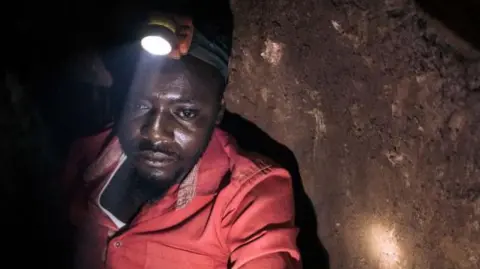The Democratic Republic of Congo (DRC) has escalated its efforts to hold global tech giant Apple accountable for alleged misdeeds involving conflict minerals. Legal complaints have been filed in France and Belgium against several of Apple’s subsidiaries, with serious accusations that the company is complicit in utilizing minerals acquired from conflict areas within the DRC. These accusations touch upon the larger issue of how lucrative natural resources can contribute to ongoing violence and human rights abuses in the region.
In representing the Congolese government, attorneys claim that Apple benefits from a supply chain compromised by “blood minerals,” which are extracted from areas controlled by armed groups. Such accusations highlight a systemic problem in how raw materials, particularly tin, tantalum, and tungsten, are sourced and introduce concerns regarding corporate responsibility in global supply chains. Apple’s response has been one of denial; the tech company has expressed a firm belief in its commitment to responsibly sourcing materials and has vowed to uphold high standards among its suppliers.
The legal authorities in both France and Belgium are now faced with the critical task of determining whether sufficient evidence exists to warrant further legal proceedings against Apple. This investigation comes amidst growing scrutiny of how large corporations may inadvertently contribute to cycles of violence and exploitation in resource-rich countries, such as the DRC. In their statements, the lawyers representing the DRC articulated serious accusations that the extraction and processing of these minerals have not only financed militant groups but have also led to instances of forced labor, including child labor, and significant environmental harm.
Apple has taken steps in the past to distance itself from unethical mining practices tied to conflict minerals. A spokesperson conveyed that as tensions escalated in the region earlier in the year, Apple instructed its suppliers to halt sourcing tin, tantalum, tungsten, and gold from DRC and neighboring Rwanda. This proactive measure was deemed necessary due to the inability of external auditors and industry certification processes to adequately ensure that sourced materials adhered to corporate ethical standards.
The DRC is renowned for its vast mineral wealth, which has paradoxically fueled a cycle of violent conflict for decades. Not only have accusations surfaced that minerals from these conflict zones are diverted into international supply chains, but numerous rights organizations assert that both legitimate mining operations and those operated by armed groups contribute to this tragic situation. Reports have indicated that substantial amounts of these extracted minerals likely make their way into consumer electronics and other products, demonstrating a pervasive link between global consumption and local turmoil.
Further complicating the narrative, Rwanda, a neighboring country accused of complicity in the illegal flow of conflict minerals, has dismissed the legal actions taken by the DRC against Apple as mere publicity stunts. Rwandan officials have denied any allegations of supplying conflict minerals to tech companies, insisting their trade practices comply with international laws.
As the situation develops, the international community watches closely, particularly investors and consumers who demand ethical accountability from companies like Apple. The implications of these legal proceedings could reverberate through various sectors, potentially prompting changes in how multinational corporations engage with suppliers in conflict-prone regions. There is a growing realization that ensuring ethical sourcing is not solely the responsibility of governments but also of the companies profiting from these resources. The challenges posed by conflict minerals serve as a stark reminder of the complexities embedded in global trade and the ethical dilemmas faced by companies operating in a world driven by ever-increasing demand for technology and natural resources.



